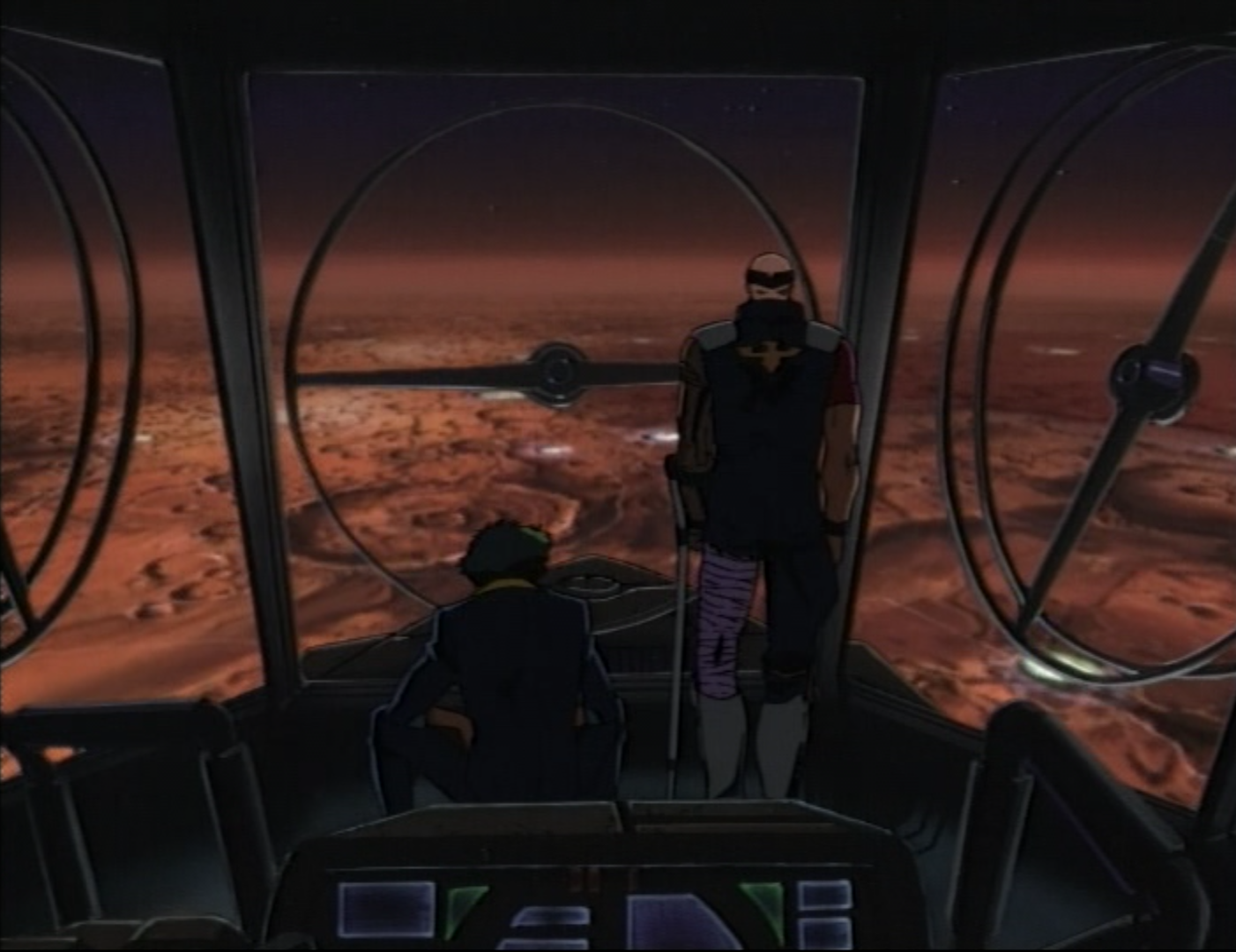Cowboy Bebop isn't Cowboy Bebop
11/20 2021

"Men only think about the past right before their death, as if they were searching frantically for proof that they were alive."
I love Cowboy Bebop, and not only the anime itself with all of its idiosyncrasies, but (perhaps) more importantly the larger narrative aspect that it as a series represents. It is a story of running away from the past told from the aspect of its many characters. And not only its main characters in the form of the quartet of misfits occupying the Bebop, but all the foils that they meet across their journey, mirroring their own journeys as characters. Which is why I was so surprised, both joyfully as well as regrettably, to the Netflix live adaption of it. It is, simultaneously, a mockery as it is a continuation of its tradition. Let me elaborate. And just to make it clear, I am not going to make a fine-grained cross-analysis here, i.e. how specific elements of character choice affect the characters themselves or very specific elements of the story, but more a succinct focus on the larger story being told, and how the characters actions in both stories affect the larger narration.
To begin let me tell you a little bit of my interpretation of the original anime. As I see it the original anime was an original1 piece of narration. It told its story not through a linear structure that focused on individual characters' development, but instead focused on them coming to terms with the choices already made. Spike & Julia were already dead before the first episode aired, and any subsequent viewing makes that abundantly clear. Faye had simply put hers on hold, meaning that her arc was completed, but the next one was only on the verge of beginning (the accepting of her crumbling past). Jet had already passed through his arc to completion, which meant that he had no real "development" in the series, but only the accepting of already performed actions. The common theme here is that every character had already put everything on hold, a theme not echoing throughout the live action version. And that kind of storytelling in the original, while perhaps remaining uninteresting only from the westernly conceived surface, is in my opinion an intensely fresh take on the journey that characters in fiction take.
This is something that is missing entirely from the live action adaption, that is simply a fact. Spike missing his second eye reflecting his already completed journey as a character stuck in the past past for example. However, I don't necessarily see this omission as a bad thing. It is simply different. Because the Netflix version is in essence a different story being told. It isn't 'Cowboy Bebop', in the way that I perceive the story, but a 'Cowboy Bebop'-flavored story, a narrative that tells itself through the lens of a conventional story in the "Western" tradition.
There are some things that I thoroughly enjoyed about the Netflix adaption, however. For one thing it is much more cohesive with all the characters tying into the main story (the syndicate story-line). This makes watching it all the way through in close succession a much more satisfying experience than the original. Or how the character of Faye, Julia and Jet are elaborated to the point of being able to be considered real2 characters with instantly perceivable goals and motivations. You could make the argument here that this was obvious in the original, but I just don't see it. I see it more in line with Vicious and Spike's relationship in the original, as being more a matter of individual inference rather than explication. Again, this is simply different rather than inherently better. And lastly, it was all in all just fun to watch if one ignored some of its glaring narrative and stylistic flaws (let's just forget that scene with Ed in the finale, or many of the overly melodramatic scenes involving Vicious).
Personally I don't think that either of the versions are inherently better, they're different. The story they are both trying to tell are simply incommensurable with each other, avoiding any attempt at objective comparison (though I realize how ridiculous this statement sounds). Being able to judge these two very distinct pieces of media as such is, I realize, somewhat of an impossible a task, but I think, a necessary one. Because, Cowboy Bebop isn't Cowboy Bebop, it is the intersection of two very similar stories told through a false dichotomy. Being angry at Cowboy Bebop for not being Cowboy Bebop is like remaining angry at water for being water.